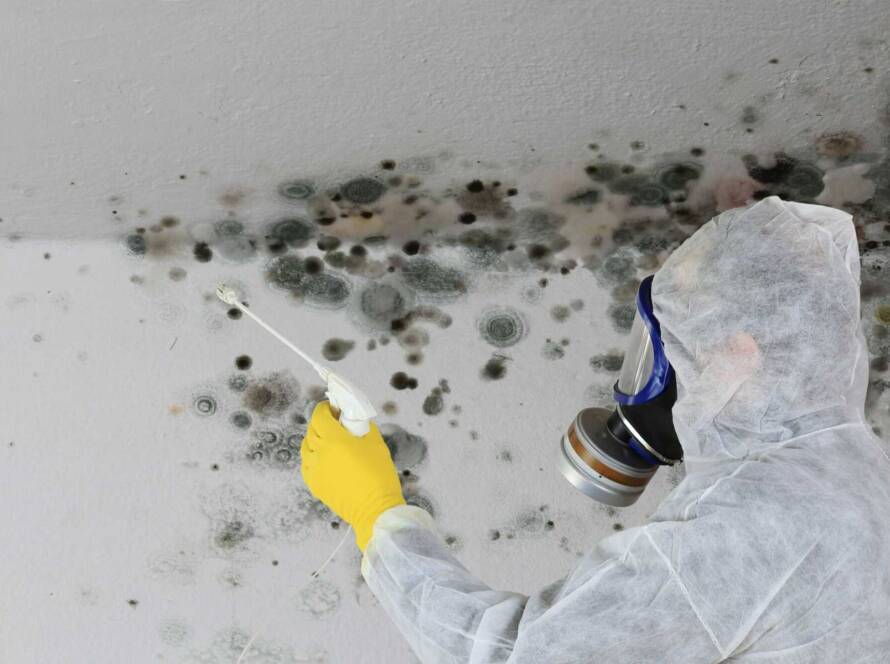In addition to ruining the structure and property in your home, black mold can be hazardous to your health. If you want your home to be as mold-free as possible, there are several signs of mold to watch out for. It’s essential to keep an eye out for mold in your home, especially if you live in a high-humidity area or have recently dealt with water damage.
In this article, we’ll go over the signs of black mold and also talk about how mold can adversely affect your health. What is Black Mold in the Home?
“Black mold” is the common term for the strain of mold called “Stachybotrys chartarum.” This type of mold sometimes produces toxic chemicals known as mycotoxins, which can cause health issues in those with allergies, asthma, or other hypersensitivities. Due to the risk mold carries for those with allergies, mold should always be removed from your home by a professional.
Look for These Signs of Mold
You can prevent mold growth in your home before it’s an issue by being proactive.
If you have any of these in your home, you’re at high risk of mold issues:
- Water damage. When water damage isn’t dealt with properly, it’s easy for mold spores to begin growing. This is why it’s important to dry out areas immediately after flooding, condensation, or water damage occurs.
- High humidity. If the humidity within your home is 70% or above, it can become a breeding ground for mold growth.
- Damp rooms without ventilation. If your bathroom, mudroom, or basement has no ventilation, it’s likely that mold could begin growing there.
There are several telltale signs that black mold can be plaguing your home. Some of the signs to watch out for include:
- Dark spots on your ceiling, floors, or walls. If you see dark spots in some of the areas we mentioned above, chances are that you’re dealing with mold growth.
- Musty or mildewy odors. These odors don’t just happen – they’re often a sign that there is mold lurking in your home.
- Respiratory symptoms. If you find yourself coughing or sneezing a lot in your home, it’s likely that you’ve got an allergy to the mold in your house.
- Condensation on glass or metal surfaces. Notable condensation is an indication of a moist environment that could easily harbor mold.
How Mold Can Affect a Household
Everyone reacts differently to mold within the home, but for those with hypersensitivity to mold spores, it can cause several health concerns.
Here are some of the symptoms that those who are allergic to mold can experience:
- Watery eyes
- Runny nose
- Itchy throat
- Wheezing
- Coughing
- Difficulty breathing
Sometimes, people set out to handle the mold in the home themselves. Going the DIY route can cause additional problems due to the harmful chemicals often used for these types of home remediation efforts. For that reason, it’s best to leave black mold remediation to the experts.
We Safely Remove Mold From Your Home
Here at BioSweep Southeast, we are experts in black mold removal. Charleston-area home and business owners have trusted us for over a decade because we’re certified restoration experts. Our 100% satisfaction guarantee is proof that we don’t stop until the job is done.

